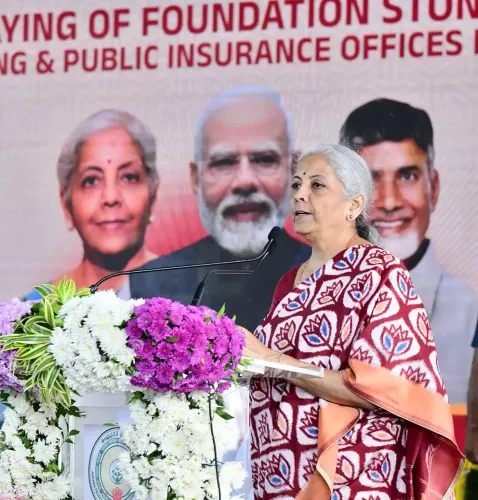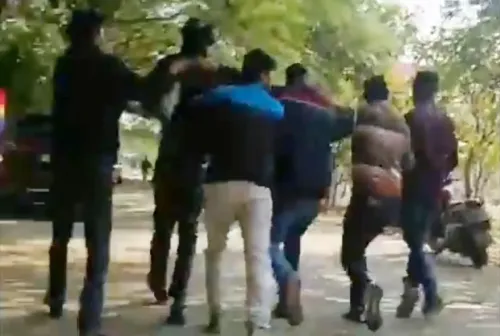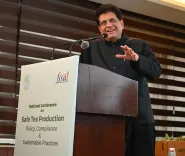Muslim Organizations Oppose UCC in Uttarakhand, Label It Unconstitutional

Synopsis
Key Takeaways
- Muslim groups oppose UCC
- Label UCC as unconstitutional
- Challenge in court planned
- Call for unity among communities
- Demand withdrawal of Waqf Amendment Bill
Muslim Organizations Oppose UCC in Uttarakhand, Label It Unconstitutional
New Delhi, Jan 28 (NationPress) The All India Muslim Personal Law Board (AIMPLB) along with various Muslim groups have vehemently criticized the introduction of the Uniform Civil Code (UCC) in Uttarakhand, deeming it profoundly unfortunate and detrimental to the nation.
These Muslim leaders have expressed their dismay regarding the actions of the Joint Parliamentary Committee (JPC) concerning the Waqf Bill, accusing it of breaching democratic principles and overstepping its authority.
In a collective statement, the AIMPLB and other Muslim organizations contended that the UCC legislation in Uttarakhand is undemocratic, unconstitutional, and infringes upon the fundamental rights of citizens. They declared that this law is completely unacceptable as it jeopardizes the rights of citizens, including Muslims, to practice their faith and adhere to its doctrines, as ensured by the Constitution.
The AIMPLB affirmed, "The Constitution guarantees all citizens, including Muslims, the liberty to practice their religious beliefs and adhere to religious teachings. Muslim personal law is a fundamental aspect of Islam, safeguarded under the Shariat Application Act, 1937." They further argued that no state holds the authority to enforce a Uniform Civil Code.
The Muslim leaders reiterated their intent to challenge the UCC legislation in court, with the AIMPLB resolving to take legal action during a recent meeting in Bengaluru. The statement also referred to a joint press conference held last July, where leaders from various communities, including Muslims, Sikhs, Christians, Buddhists, Dalits, and Adivasis, unanimously declared that they would never accept the UCC under any circumstances.
"We urge Muslims and other citizens of Uttarakhand not to panic and to stand firm on their religious laws. Inshallah, we will contest this at every level within the democratic framework," the AIMPLB urged.
Muslim organizations have also criticized the JPC regarding the Waqf, accusing it of neglecting parliamentary regulations and democratic traditions while reviewing the Waqf Amendment Bill 2024.
The committee's recommendations to endorse the bill, which overlooked the opinions and sentiments of millions, were labeled as unreasonable and undemocratic.
"The JPC has exhibited a blatant disregard for parliamentary rules and boundaries, conducting its proceedings while ignoring all democratic values and traditions," the statement noted.
The Muslim organizations submitted their objections both in written form and orally, with millions of emails sent to the committee opposing the bill.
According to the AIMPLB, approximately 36.6 million emails were sent, along with additional submissions from other Muslim organizations.
The AIMPLB also emphasized its strong opposition to any attempts to seize or destroy Waqf properties, with leaders asserting that they will not allow any manipulation or usurpation of these assets.
The Board and other organizations stated that any attempt to seize minority properties would be regarded as sheer oppression, which will not be tolerated by justice-loving individuals.
"We regret that the NDA’s allied parties have failed to fulfill their responsibilities and supported the BJP's communal agenda. We implore the secular opposition parties to unite and robustly oppose this bill if it is introduced in Parliament," the statement conveyed.
The Muslim organizations have demanded the government retract the controversial Waqf Amendment Bill and restore the previous law. If this demand is not addressed, they warned that Muslims would have no alternative but to take to the streets and employ other democratic means, including a nationwide agitation.
"We will utilize all democratic and constitutional methods, including a nationwide agitation. If necessary, we may take to the streets or face incarceration for this cause; we will not hesitate," the statement concluded.
Maulana Khalid Saifullah Rahmani, President of AIMPLB, along with leaders from organizations such as Jamiat Ulema Hind and Jamiat Ahle Hadith, are signatories to this statement.









